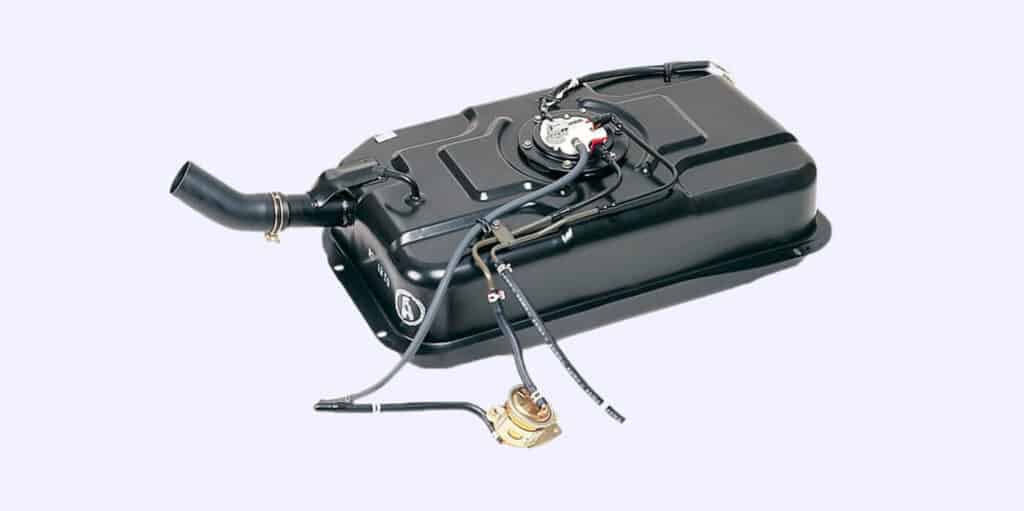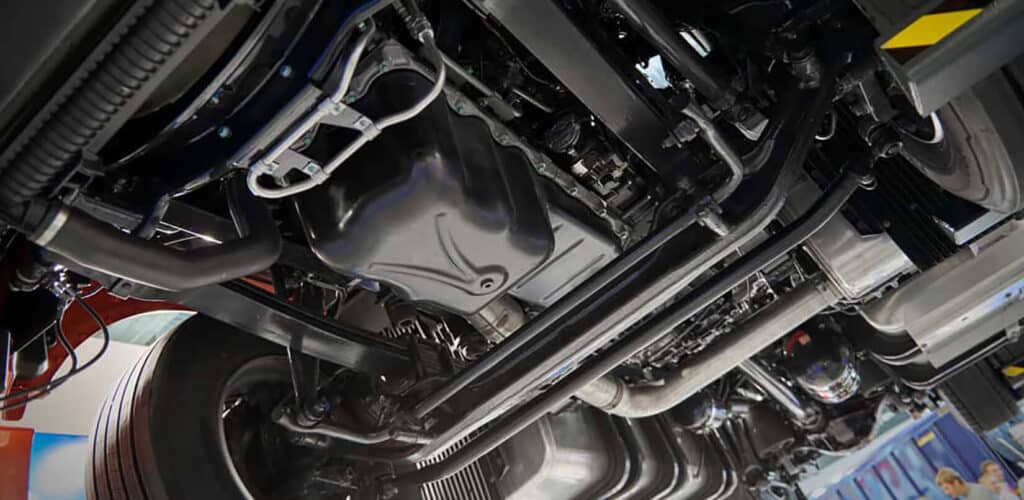Ever imagined running on empty while cruising down the Trans-Canada Highway? Not the ideal scenario, right? Your car’s fuel tank is an often overlooked component that plays a crucial role in keeping your vehicle on the move. It holds and protects the gasoline or diesel that powers your engine. But what happens when this essential component fails? This guide will walk you through everything you need to know about fuel tank replacements.
What is a Fuel Tank and its Purpose?
In the simplest terms, the fuel tank is a container that holds the fuel necessary to power your vehicle’s engine. It is designed to safely store gasoline or diesel and feed it to the engine via the fuel system. Aside from this basic function, a fuel tank also plays a vital role in filtering the fuel and managing emissions produced during fuel evaporation.
How Much Will it Cost to Replace a Fuel Tank in Canada?
The cost of replacing a fuel tank can vary significantly depending on your vehicle’s make, model, and the region in Canada you reside. On average, you can expect to pay between $800 and $1500. This price includes parts, which typically cost between $300 and $800, and labour, which can range from $500 to $700. A replacement job usually takes between 2 to 4 hours, depending on the complexity of the vehicle’s design.

What are the Symptoms of a Faulty Fuel Tank?
• Fuel leaks: This is often the most noticeable sign of a faulty fuel tank. If you notice a strong gasoline smell around your vehicle or spot puddles of fuel underneath it, it might be due to a leaking fuel tank.
• Decreased fuel efficiency: A defective fuel tank can lead to increased fuel consumption, as fuel might be wasted due to leaks or inefficient distribution to the engine.
• Difficulty starting the engine: If your vehicle struggles to start or fails to start entirely, it might be due to a problem with the fuel supply from the tank.
• Check Engine light: A faulty fuel tank can trigger the Check Engine light on your vehicle’s dashboard. However, this light can indicate various issues, so it’s important to get a proper diagnosis.
• Fuel gauge inconsistencies: If the fuel gauge is giving erratic readings or showing that the tank is empty when you’ve just filled up, it could be a sign of a problem with the tank or its sensor.
• Engine performance issues: Issues like engine misfires, stalling, or power loss could also indicate a problem with the fuel supply from the tank to the engine.
How Long Does a Fuel Tank Last?
With proper care and maintenance, a fuel tank can last the lifespan of the vehicle itself. However, harsh driving conditions, accidents, or poor maintenance can lead to premature failure.
How Does a Fuel Tank Become Defective?
• Age and corrosion: Over time, fuel tanks can corrode due to prolonged exposure to the elements and the chemical reactions between the tank materials and the fuel itself. This process can be accelerated in harsh weather conditions or if the vehicle is often parked in damp areas.
• Physical damage: Physical damage can also lead to a defective fuel tank. This might be the result of a collision, impact from road debris, or rough handling during maintenance.
• Faulty installation or repairs: If the fuel tank or any of its components are improperly installed or repaired, this could lead to future defects. It’s always crucial to ensure professional handling of these components.
• Use of low-quality materials: Fuel tanks made of low-quality materials are more prone to damage and corrosion over time. Quality of materials plays a significant role in the longevity of the fuel tank.
• Contaminated fuel: Dirty or contaminated fuel can also cause a fuel tank to become defective. Contaminants in the fuel can lead to clogs or corrosion in the tank over time.
• Design flaws: In some cases, design flaws can lead to recurring issues with the fuel tank. This could be a problem with the tank itself or related components like the fuel pump or fuel lines.
How Can a Faulty Fuel Tank Affect Vehicle Performance?
• Fuel leakage: The most immediate impact of a faulty fuel tank is potential fuel leakage. This can lead to decreased fuel efficiency and frequent trips to the gas station, which can hinder overall vehicle performance.
• Reduced fuel pressure: A leaking or defective fuel tank can lead to reduced fuel pressure, which might adversely affect the engine’s performance. With inadequate pressure, the fuel might not reach the engine in the required amount or at the needed rate, leading to poor acceleration, power loss, and overall reduced performance.
• Risk of contamination: If the fuel tank is damaged, it may allow dirt, debris, and other contaminants to enter. These impurities can clog the fuel filter and fuel injectors, hindering the smooth flow of fuel to the engine and causing issues like rough idling, hesitation, and even engine misfires.
• Compromised fuel pump operation: A faulty fuel tank might also affect the operation of the fuel pump, which is typically located inside the tank itself. If the pump can’t effectively draw fuel due to a tank issue, this could lead to hard starts, stalling, and potentially leaving the vehicle unable to run.
• Environmental harm: Lastly, a faulty fuel tank not only affects the vehicle’s performance but also the environment. Fuel leakages can cause environmental damage, contributing to air and ground pollution.
Is it Safe to Drive with a Faulty Fuel Tank?
Driving with a faulty fuel tank is a gamble you don’t want to take. Remember, your fuel tank is not just a container; it’s the lifeline of your vehicle, holding the energy that keeps your engine running. If there’s a crack or hole, fuel can leak, and this poses several risks. From a practical perspective, you could run out of fuel faster than you realize, leaving you stranded in an inconvenient location. But the safety risks are far more concerning.
Fuel, whether it’s gasoline or diesel, is highly flammable. Any leaked fuel poses a significant fire hazard, especially if it comes into contact with a hot component like the exhaust. A tiny spark can trigger a fire, putting your life, and the lives of other road users, at risk. Besides, the fumes from leaking fuel are toxic and can be harmful if inhaled over a long time. Driving with a faulty fuel tank can also lead to engine damage if the fuel supply gets compromised. In summary, it’s highly unsafe and potentially life-threatening to drive with a defective fuel tank. Immediate attention and repair are strongly recommended.

How Can I Make My Fuel Tank Last Longer?
• Regular Inspections: Regularly inspect your fuel tank for signs of damage or corrosion.
• Clean Fuel: Use clean fuel to prevent impurities from causing internal damage.
• Proper Driving Habits: Avoid aggressive driving habits that can lead to physical damage to the fuel tank.
Can a Mobile Mechanic Replace a Fuel Tank?
Yes, many mobile mechanics are equipped and trained to replace fuel tanks. This can be a convenient option as it allows the replacement to be done at a location and time that suits you.
Conclusion: Fuel Tank Replacement
While it’s a component often taken for granted, the fuel tank is a critical part of your vehicle’s performance and safety. Regular inspections and maintenance are key to extending its lifespan and ensuring your journeys, whether across Canada or around the block, remain uninterrupted. If you suspect your fuel tank may be faulty, don’t hesitate to have it checked out – it’s always better to be safe than sorry.
Next Steps
Book Your Fuel Tank Replacement Service
The service most frequently booked by those who read this article is Fuel Tank Replacement. Uchanics’ expert technicians make the process even more convenient by bringing the service right to your doorstep. We perform this job at your home or office, covering over 40 cities in Ontario, including Oshawa, Ajax, Toronto, Scarborough, Mississauga, Brampton, and more. Our commitment to excellence has earned us more than 700 glowing 5-star reviews. Choose Uchanics for your Fuel Tank Replacement and experience unparalleled convenience and top-quality service.
